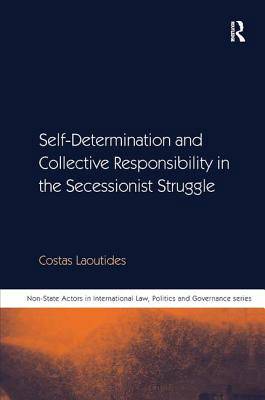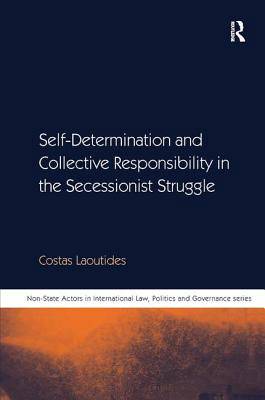
- Afhalen na 1 uur in een winkel met voorraad
- Gratis thuislevering in België vanaf € 30
- Ruim aanbod met 7 miljoen producten
- Afhalen na 1 uur in een winkel met voorraad
- Gratis thuislevering in België vanaf € 30
- Ruim aanbod met 7 miljoen producten
Zoeken
Self-Determination and Collective Responsibility in the Secessionist Struggle
Costas Laoutides
€ 195,95
+ 391 punten
Omschrijving
The often violent emergence of new independent states following the end of the Cold War generated discussion about the normative grounds of territorial separatism. A number of opposing approaches surfaced debating whether and under which circumstances there is a right for a community to secede from its host country. Overwhelmingly, these studies placed emphasis on the right to secession and neglected the moral stance of secessionist movements as agents in international relations. In this book Costas Laoutides explores the collective moral agency involved in secessionist struggles offering a theoretical model for the collective responsibility of secessionist groups. Case-studies on the Kurds and the people of Moldova-Transdniestria illustrate the author's theoretical arguments as he seeks to establish how, although the principle of self-determination was envisaged as a means of gradually bestowing political power upon the people, it never managed to realize its full potential because it was interpreted strictly within a framework of exclusionary politics of identity.
Specificaties
Betrokkenen
- Auteur(s):
- Uitgeverij:
Inhoud
- Aantal bladzijden:
- 266
- Taal:
- Engels
- Reeks:
Eigenschappen
- Productcode (EAN):
- 9781472433121
- Verschijningsdatum:
- 28/10/2015
- Uitvoering:
- Hardcover
- Formaat:
- Genaaid
- Afmetingen:
- 156 mm x 233 mm
- Gewicht:
- 612 g

Alleen bij Standaard Boekhandel
+ 391 punten op je klantenkaart van Standaard Boekhandel
Beoordelingen
We publiceren alleen reviews die voldoen aan de voorwaarden voor reviews. Bekijk onze voorwaarden voor reviews.











